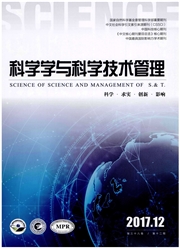

 中文摘要:
中文摘要:
在新兴市场背景下企业为了生存和发展与政府保持着不同程度的关系,对政府关系投入的不同也导致了企业国际化绩效的不同。基于资源依赖理论研究了在新兴市场中企业对母国政府的关系投入与其出口强度之间的关系,结果表明两者的关系呈倒U型,并受到企业创新能力的正向调节。具体来说,在企业对政府关系投入的较低水平下,政府关系能为其国际化带来资源好处从而促进其出口;但若投入过度,政府关系给企业出口所带来的好处却下降了,对政府关系的过度依赖给出口产生了负面影响。另外,也证明了创新能力加强了企业对政府的关系投入对出口的积极影响,而在投入过度的情况下能减弱其对出口产生的负面影响。基于世界银行在2011—2013年收集的中国企业的截面数据、采用Tobit回归分析法支持了以上结论。说明了在新兴市场中并不是对政府关系投入得越多越好,也并不是所有企业在国际化的过程中都具有利用这种优势的能力,企业自身的创新能力对于其国际化发展来说更为重要。
 英文摘要:
英文摘要:
Emerging market firms build different degrees of relationships with governments for surviving and deve-lopment. Different levels of investment on government relationships lead to different export performance. Based on resource dependence theory, this article examines the relationship between emerging market firms' investment on government relationships and firms' export intensity. The results suggest an inverted U-shape relationship between them and a positive moderation effect of innovative capabilities on that relationship. Specifically, under the gene-ral level of relationship investment, government relationship promotes firms' export by providing resource benefits;While excessive relationship investment may devalue the government relationship and leads to over-dependence on that relationship which impairs firms' export. Furthermore, we found innovative capabilities strengthen the positive effect of government relationship investment on export intensity and attenuate the negative effect under the exces-sive level. Adopting Tobit regression method, we test our hypotheses using the cross-sectional data of Chinese firms surveyed by the World Bank from 2011-2013. The results suggest that: (1) It is not always worth investing on government relationships for emerging market firms; (2) Not all firms possess the equal ability to internalize government-related advantages during internationalization; (3) And firms' own innovative capabilities are also criti-cal for firms' internationalization.
 同期刊论文项目
同期刊论文项目
 同项目期刊论文
同项目期刊论文
 期刊信息
期刊信息
